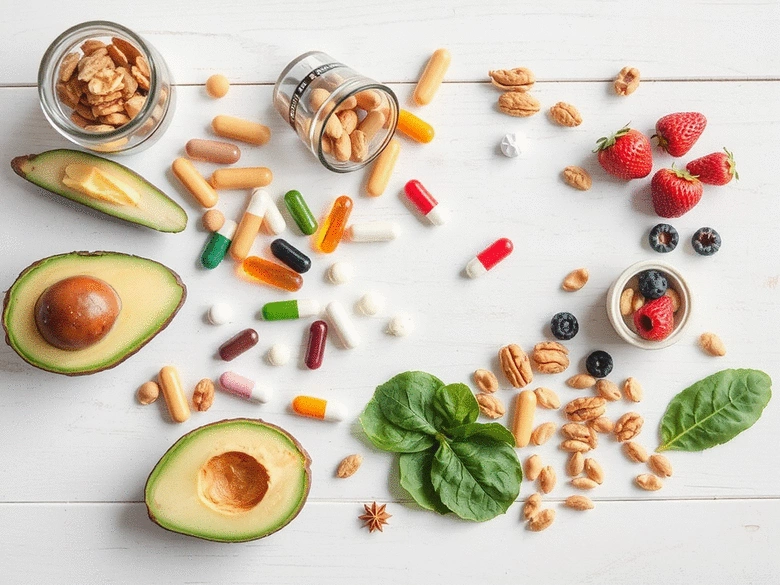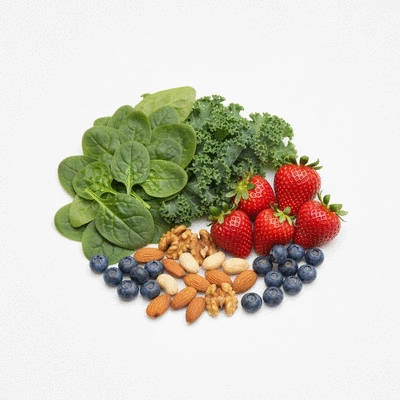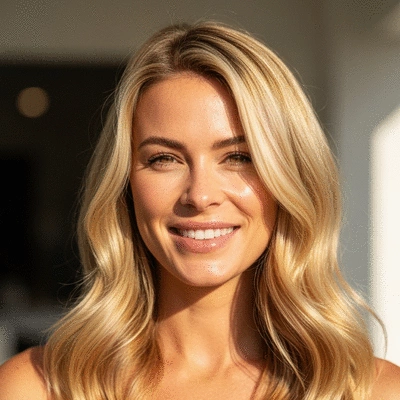Iron: Oxygen Supply
Vital for carrying oxygen to hair follicles. Deficiency can lead to hair shedding, fatigue, and brittle nails.
Are you aware that the health of your hair is intricately linked to what you consume? Understanding the relationship between nutritional deficiencies and hair loss can empower you to take control of your hair health. Let’s explore the essential nutrients that can make a significant difference in maintaining luscious locks.
This visual highlights key nutrients vital for preventing hair loss and promoting healthy hair growth, categorized by their primary role and impact.
Vital for carrying oxygen to hair follicles. Deficiency can lead to hair shedding, fatigue, and brittle nails.
Supports hair growth cycles. Low levels linked to conditions like alopecia areata and overall hair thinning.
Crucial for protein synthesis & cell division, essential for healthy hair follicles. Prevents dry scalp & dandruff.
Maintain hair vitality, support keratin production, and ensure optimal hair growth for strong, resilient hair.
Have you ever wondered how what you eat impacts your hair health? The link between nutritional deficiencies and hair loss is fascinating and incredibly important. Our hair follicles rely heavily on vitamins and minerals for optimal function, and a lack of these essential nutrients can lead to significant hair thinning or even loss. Let’s dive deeper into how nutrition affects hair health and uncover the vital role different nutrients play.
The health of your hair is closely tied to your overall nutrition. Hair follicles are highly metabolic tissues, meaning they require a constant supply of nutrients to function properly. For instance, vitamins and minerals contribute to the hair growth cycle, ensuring that follicles produce hair at a healthy rate. When the body doesn't receive enough of these, it can lead to stunted growth or shedding.
By understanding the biological mechanisms behind these nutrients, we can appreciate how a well-rounded diet is more than just good for our bodies—it's also essential for maintaining luscious locks!
Nutritional deficiencies can manifest in various ways, particularly through hair loss. Let's explore some of the most common deficiencies that I often encounter in my practice.
Did you know that iron deficiency could be a silent contributor to hair loss? When there’s a lack of iron in the body, it leads to decreased oxygen supply to hair follicles. This can result in hair shedding, especially in women. Symptoms may include fatigue, brittle nails, and hair thinning. Recognizing these signs early can help you address the issue before it becomes more serious! Research published by the National Institutes of Health highlights the strong link between iron deficiency and hair loss, particularly in non-anemic women.
Vitamin D is often talked about in relation to bone health, but it's also vital for hair growth cycles. Low levels of vitamin D can trigger conditions like alopecia areata, where the immune system attacks hair follicles. This highlights the need for sufficient vitamin D levels, not only for strong bones but also for vibrant hair. Studies, such as those detailed on Medical News Today, suggest that vitamin D deficiency is prevalent in individuals experiencing hair loss.
Zinc plays a crucial role in protein synthesis and cell division, making it essential for hair follicle health. A deficiency in zinc might lead to hair loss, as well as issues like dry scalp and dandruff. Incorporating zinc-rich foods into your diet can help keep your hair strong and resilient!
Biotin and various B vitamins, including B12 and folate, are often referred to as hair health fuel. These vitamins help in maintaining hair vitality, supporting the production of keratin, and ensuring optimal hair growth. If you're looking to enhance your hair health, focusing on these nutrients is a great first step! The National Institutes of Health provides further insights into the role of biotin and other vitamins in hair health.
While we often hear about the big players like iron and biotin, other nutrients like magnesium and selenium can also influence hair health. Magnesium helps reduce inflammation in the scalp, while selenium protects against oxidative stress. Including a variety of nutrient-dense foods in your diet increases your chances of receiving all the necessary vitamins and minerals for healthy hair.
Lastly, let’s not forget about protein and amino acids! These are fundamental building blocks of hair that influence hair density and thickness. Adequate protein intake ensures that your body can produce enough keratin, leading to fuller and stronger hair. Think of protein as the foundation upon which healthy hair grows!
For optimal hair health, consider incorporating a variety of colorful fruits and vegetables into your diet. Foods rich in antioxidants, such as berries and leafy greens, can combat oxidative stress, supporting not just your hair but your overall well-being. Remember, a well-rounded diet is key to vibrant, healthy hair!
A: The most common nutritional deficiencies linked to hair loss include iron, vitamin D, and zinc deficiencies, as well as insufficient intake of biotin and other B vitamins.
A: Iron is vital for carrying oxygen to hair follicles. A lack of iron reduces this oxygen supply, which can weaken hair follicles and lead to increased hair shedding and thinning.
A: Yes, low levels of vitamin D are associated with disruptions in the hair growth cycle and can contribute to conditions like alopecia areata and overall hair thinning.
A: Biotin and B vitamins support keratin production, which is the primary protein in hair. They also help maintain hair vitality and ensure optimal hair growth, contributing to strong and resilient hair.
A: While supplements can be beneficial, it's crucial to consult a healthcare professional or registered dietitian before starting any new regimen. They can help assess your specific needs and recommend appropriate supplements, as excessive intake can have side effects. Prioritizing a balanced diet rich in whole foods is always recommended.
When it comes to preventing hair loss and promoting healthy hair growth, nutrition plays a pivotal role. Key vitamins and minerals act like the foundation of a strong house—they support not just the structure of your hair but its overall vitality. Essential nutrients like iron, vitamin D, and biotin are crucial for maintaining vibrant hair. By ensuring you're getting a balance of these nutrients, you’re giving your hair the best chance to thrive!
Let’s recap some of the most important nutrients for your hair health:
Incorporating these nutrients into your diet can help combat hair loss and enhance growth. Remember, it's not just about consuming these vitamins; it's about creating a balanced diet that nourishes your body and hair!
Now that we’ve explored the importance of nutrition for hair health, it's time to take action! Start by examining your dietary intake—are you getting enough of those essential vitamins and minerals? I encourage you to consult a healthcare professional or a registered dietitian. They can help you assess your current diet and identify any gaps.
Additionally, if you're considering supplements, it's essential to do so mindfully. Not all supplements work for everyone, and some can have side effects if taken in excess. Always prioritize whole foods, as they provide a balanced array of nutrients that benefit both your hair and overall health. Your hair deserves the best care possible!
To support your journey towards healthier hair, I've compiled a list of valuable resources that can help you assess your nutritional needs:
These resources are designed to help you take informed steps towards enhancing your hair health. Remember, empowering yourself with knowledge is the first step to reclaiming your confidence and vitality when it comes to hair health!
Here is a quick recap of the important points discussed in the article:
At What Causes Hair Loss, we unravel the complexities of hair loss with science-backed insights, empowering you with dermatologist-reviewed guides and effective solutions for your hair health journey.
Dermatologist-Reviewed Insights


